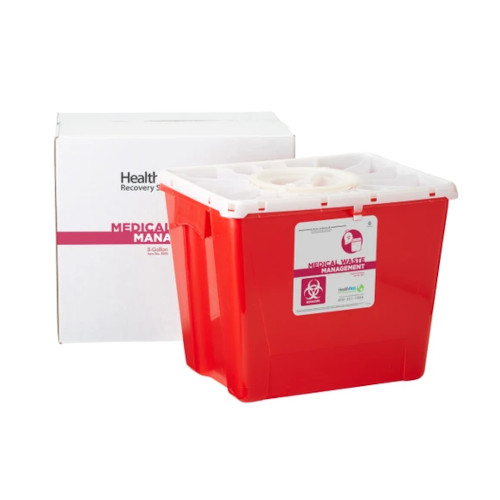The Value of Appropriate Waste Disposal Practices
The monitoring of waste is a crucial facet of environmental stewardship that commonly goes undetected in our day-to-days live. Appropriate garbage disposal methods are not just a matter of convenience but are crucial for protecting our ecological communities and public health. From the consequences of incorrect waste disposal on our setting to the lasting implications for future generations, the significance of taking on lasting waste management techniques can not be overemphasized. By checking out the ecological impact of careless garbage disposal, the benefits of reusing campaigns, and the value of neighborhood interaction in waste decrease efforts, a much deeper understanding of why correct garbage disposal techniques are important emerges.
Environmental Influence of Improper Disposal
Improper disposal of waste poses a substantial hazard to the setting because of its destructive impacts on ecosystems and human health. When waste is not correctly taken care of, it can bring about contamination of the soil, air, and water, creating injury to different plant and pet species. click here. Chemicals and toxins from incorrectly disposed waste can permeate into the ground, contaminating groundwater resources and impacting the health and wellness of both wildlife and people
In addition, the build-up of waste in garbage dumps generates greenhouse gases like methane, adding to environment change and international warming. Improper disposal techniques additionally cause littering, which not just degrades the visual worth of the environment but can also damage wildlife through ingestion or complexity.
To minimize these environmental effects, it is important for people and areas to adopt correct waste disposal practices such as recycling, composting, and responsible dangerous waste disposal. By taking these steps, we can assist protect environments, protect natural resources, and protect human health and wellness for current and future generations.
Benefits of Recycling Programs
On a regular basis joining reusing programs offers many benefits for both the setting and society all at once. Among the key benefits of recycling is the preservation of all-natural sources. By recycling products such as paper, steel, plastic, and glass, less raw products need to be removed from the planet, causing decreased deforestation, mining, and boring tasks. This conservation of sources not just aids in maintaining eco-friendly balance yet likewise adds to lasting advancement.
In addition, recycling plays an important role in reducing power intake and greenhouse gas emissions. The production of products from recycled products typically requires much less power compared to producing from virgin sources - medical waste removal near me. Because of this, the carbon footprint related to the manufacturing process is substantially reduced, assisting in the fight against climate change
In addition, recycling programs create work chances in the recycling sector, promoting economic development and social well-being. By encouraging the recycling and reuse of materials, these programs sustain a circular economy that minimizes waste generation and makes the most of source performance, inevitably causing a cleaner, greener future for generations ahead.
Contaminated Materials Monitoring Standards
Implementing efficient contaminated materials administration guidelines is essential for minimizing ecological and health and wellness dangers connected with the inappropriate disposal of hazardous materials - click here. Appropriate handling, therapy, and disposal of contaminated materials are important to prevent contamination of soil, water sources, and air
One secret guideline is appropriate labeling of contaminated materials containers to guarantee secure handling and transportation. In addition, facilities must follow stringent storage requirements to stop leakages, spills, or crashes that can endanger human health and wellness and the atmosphere. Normal training programs for employees on contaminated materials management practices are likewise crucial to ensure compliance with regulations and promote a society of safety.
Additionally, unsafe waste should be segregated based on its properties to avoid chemical reactions that can result in unsafe circumstances. Applying an extensive waste monitoring system can aid keep track of the movement of hazardous materials from generation to disposal, making sure transparency and accountability. By following these standards carefully, industries and companies can contribute to a more secure and cleaner setting for existing and future generations.
Community Participation in Waste Decrease
To efficiently address the ecological and health risks connected with contaminated materials management, involving the neighborhood in waste reduction campaigns is critical. Area involvement plays a critical duty in promoting sustainable waste monitoring practices and fostering a society of environmental duty. By educating locals concerning appropriate waste partition, reusing, and composting techniques, areas can significantly lower the amount of waste sent to landfills, therefore minimizing environmental pollution and saving natural deposits.
Area involvement in waste reduction programs additionally aids in raising recognition concerning the value of waste reduction and encourages individuals to take on eco-friendly behaviors in their lives - medical waste removal service. Collaborative initiatives in between regional authorities, waste monitoring companies, and neighborhood members can lead to the application of efficient waste decrease strategies customized to the particular requirements of each neighborhood or community
In addition, community interaction promotes a sense of ownership and accountability amongst residents, empowering them to take aggressive steps towards lowering waste generation and advertising a cleaner, much healthier atmosphere for future and existing generations. By collaborating towards common waste decrease objectives, neighborhoods can make a considerable effect on reducing the unfavorable effects of incorrect garbage disposal practices.

Future of Sustainable Waste Practices
The advancement of sustainable waste practices is important for progressing environmental stewardship and source preservation in the coming years. As the worldwide populace proceeds to grow, so does the quantity of waste created (medical waste removal service). Traditional garbage disposal techniques, such as landfilling and incineration, are no more sustainable in the lengthy term due to their substantial environmental effects. Progressing, the future of lasting waste practices depends on accepting a round economic climate approach, where sources are recycled, reused, or repurposed to decrease waste generation.
Technological technologies play a key function in shaping the future of lasting waste methods. Advanced waste sorting and recycling modern technologies can help improve the effectiveness of waste management procedures, enabling the recovery of beneficial resources from waste streams. Furthermore, the fostering of biodegradable materials and composting approaches can assist minimize the amount of natural waste winding up in land fills, thereby mitigating greenhouse gas emissions.
In addition, promoting consumer understanding and education on appropriate waste segregation and disposal methods is crucial for driving behavior adjustment in the direction of sustainability. By cultivating a society of waste recycling, reuse, and reduction, areas can jointly add to a cleaner and healthier environment for future generations.

Conclusion
To conclude, proper waste disposal methods are crucial for lessening environmental influence and advertising sustainability. By implementing recycling programs, managing unsafe waste properly, and motivating area involvement in waste reduction efforts, we can function towards a cleaner and healthier setting. It is necessary for governments, individuals, and companies to prioritize lasting waste techniques for the future well-being of our world.

From the consequences of inappropriate waste disposal on our atmosphere to the long-lasting ramifications for future generations, the value of adopting lasting waste monitoring practices can not be overstated. By checking out the ecological influence of untrustworthy waste disposal, the advantages of reusing initiatives, and the significance of neighborhood engagement in waste reduction efforts, a deeper understanding of why correct waste disposal practices are critical arises.
By educating locals regarding correct waste partition, recycling, and composting strategies, areas can significantly lower the amount of waste sent to land fills, thereby lessening environmental pollution and preserving all-natural sources. (click here)
Moving forward, the future of lasting waste methods lies in accepting Get More Info a circular economy approach, where sources are recycled, reused, or repurposed to decrease waste generation.
Advanced waste sorting and reusing modern technologies can help enhance the efficiency of waste administration procedures, permitting for the recuperation of beneficial sources from waste streams.